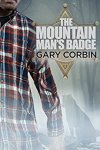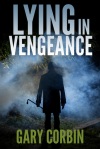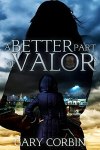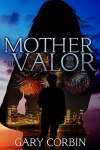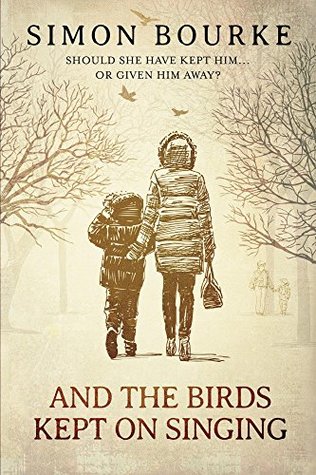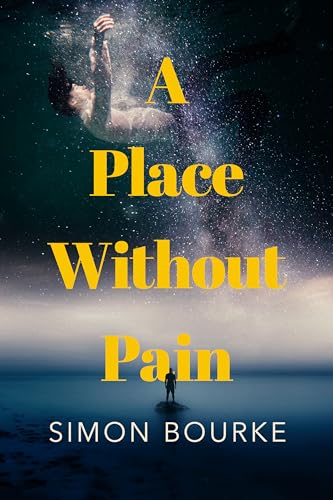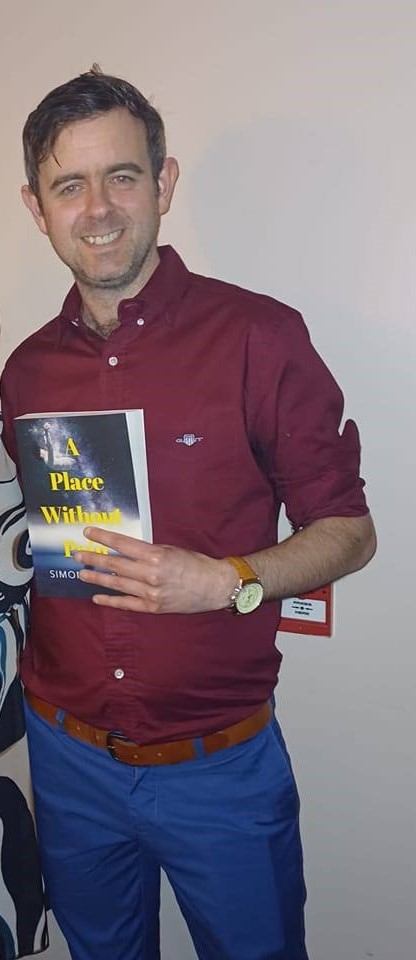My guest today on What Cathy Read Next is author Gary Corbin. I’ve read several of Gary’s books and enjoyed every single one of them. Typical of me, the first book I read, The Mountain Man’s Badge, was number three in his ‘Mountain Man’ series and I followed that up with Lying in Vengeance, which was number two in the ‘Lying Injustice’ series. I’ve done a bit better with his latest crime series featuring rookie police officer Valorie Dawes having read the two most recent books in the series, A Better Part of Valor and Mother of Valor. Now there’s another one on the way, Under the Banner of Valor, which will be published on 7th May 2024.
Thanks to Gary, I have a copy of Under the Banner of Valor in my review pile and I’m really looking forward to catching up with Valorie. In the meantime, Gary has kindly agreed to answer a few questions about the book, including how his main character has developed over the course of the series and how she made a narrow escape in book one!
I really hope Gary’s fascinating answers to my questions make you keen to read Under the Banner of Valor or in fact to pick up the whole series. Read his answer to my last question to find out a great opportunity to do that!
About the Book
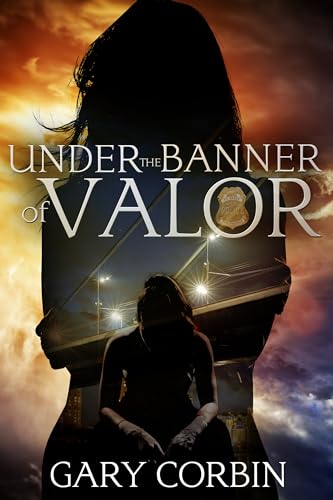
When a fanatical sniper takes aim at women entering family planning clinics, Val risks everything to protect her closest friend.
Val Dawes and the WAVE Squad get called into action after Clayton’s family planning clinics receive ominous threats: Close the clinics, or else.
WAVE Squad member Valorie Dawes takes this threat personally, as her closest friend since childhood, Beth, discloses that she’s pregnant and is considering an abortion.
Can Val support her friend and keep her safe from the armed madman? Or will Beth’s stubborn recklessness thrust her into harm’s way?
Find Under the Banner of Valor on Goodreads
Pre-order/Purchase Under the Banner of Valor from Amazon [link provided for convenience not as part of an affiliate programme]
Q&A with Gary Corbin, author of Under the Banner of Valor
Q. Welcome, Gary. Under the Banner of Valor is the fifth book in your crime thriller series featuring young police officer Valorie Dawes. Did you have a clear idea of how the series would progress from the very beginning?
A. Not at all. In fact, in the very first draft of what became A Woman of Valor, the main character died! So, safe to say, I didn’t even envision it as a series.
But I fell in love with the character and the setting and I knew her story had to continue. I had a sense that she’d have to grow in certain areas – working her way through her #metoo past, for instance – and that she’d have to confront some other key areas of her backstory, like the man who abused her as a child, and coming to terms with her estranged mother. But I never expected it to continue on for 5+ books.
Q. Why did you decide on a female protagonist?
A. A female cop seemed a lot more interesting than a male one, first of all, and presented a more interesting challenge for me to write as a man in his later years. Also, it opened up the entire revenge-against-rapists angle as well as the “glass ceiling” issue that she constantly faces. All of those seemed too compelling to pass up.
Q. How has Valorie’s character changed over the course of the series?
A. Val is growing up. She starts out as a pretty naïve, though jaded, young woman who doesn’t know much about the world, about men, about sex and relationships, and about what it’s like to compete in a male-dominated profession. With each novel, she learns valuable lessons about each of those things, all the while becoming a better cop. In this most recent book, she has a steady boyfriend, she’s improving her reputation as a cop within the department and the community, and she’s learning what it’s like to grow away from childhood friendships—how those evolve and what it’s like to grow apart from someone you love. She also has to confront her beliefs and feelings around a very controversial topic – abortion – one that she’d never had to really address before. And it turns out she’s not quite as sure of her feelings as she would have expected.
Q. Are there different challenges to writing a series as opposed to a standalone novel?
A. Absolutely! With a stand-alone novel, you have to invent everything fresh: characters, setting, relationships, timeframe, etc. Your ending needs to wrap everything up, since there’s no “next book” for readers to turn to in order to learn more about the characters they’ve grown to love. And you have a free hand to begin and end the book wherever you like—which is both good and bad. It’s a lot of work!
In a series, you have to consider the linkages, both prior and subsequent to the book at hand. Will character X be in the next book? Should I bring back so-and-so from the prior books? How much resolution should I include in the key arcs of a character’s growth? If you kill off a character, there’s no bringing them back in a future book.
Q. What are you working on next?
A. I’m about a dozen chapters into my next Valor book – The Injustice of Valor. A vigilante takes justice into his own hands, killing sex offenders who walk on technicalities, and the Clayton PD seems uninterested in pursuing him—until one of their own staff, a trans woman named Shelby, becomes his next victim.
Q. How will you be celebrating publication day of Under the Banner of Valor?
A. I’m hoping to have a book launch party at a local pub here in Camas – planning for that is still underway. There’s nothing like beer and food to loosen up people’s decision-making about whether to buy a book! Especially if I’m standing right there, smiling and asking them to buy.
I also have book promos going live on the release date (May 7th) with Fussy Librarian, Book Basset, and Ereader IQ. All of the previous books in the Valor series will be discounted, with the first book, A Woman of Valor, set to only $0.99!
About the Author
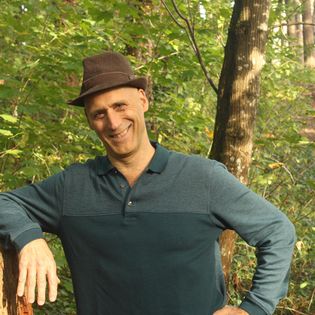
Gary Corbin is a writer, editor, playwright, and actor in Camas, WA, a suburb of Portland, OR. Lying in Judgment, his Amazon.com best-selling legal thriller, was released in early 2016. Lying in Judgment was selected as Bookworks.com “Book of the Week” for July 11-18, 2016 and is one of six novels worldwide featured in the Literary Lightbox “Indie Spotlight” for Autumn/Winter 2016-17.
Gary is a member of PDX Playwrights, the Willamette Writers Group, the Northwest Independent Editors Guild, the Portland Area Theater Alliance, and the Writing Dojo Writers Workshop, and participates in workshops and conferences in the Portland, Oregon area.
A homebrewer as well as a maker of wine, mead, cider, and soft drinks, and an avid home roaster of fresh coffee, Gary is a member of the Oregon Brew Crew and a BJCP National Beer Judge. He loves to ski, cook, and garden, and hopes someday to train his dogs to obey. And when that doesn’t work, he escapes to the Oregon coast with his sweetheart. (Photo/bio: Author website)
Connect with Gary
Website | Twitter/X | Facebook
